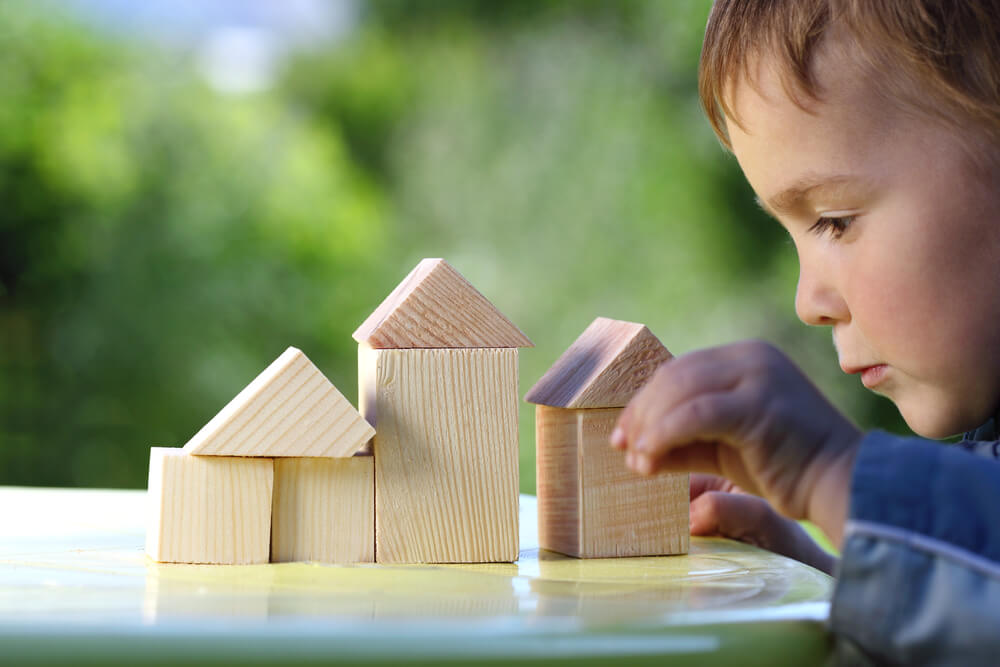When talking about focus and attention, child development experts usually agree that a four or five-year-old child will be capable of focusing on a task, on average, for two to five minutes times their age. In other words, a five-year-old can focus on a task for around ten to 25 minutes.
Still, our experts at Children’s Medical Center of South Florida know from experience, after conducting thousands of well-child checks, that these numbers are only ballpark figures and serve as optimal guidelines for raising children.
The actual numbers will be highly dependent on many factors and situations.
As a matter of fact, focus and attention need to be contextualized to make more sense. Children’s attention span may differ depending on such minuscule factors as time of day (morning, middle of the day, or bedtime). All in all, attention span is relative and elastic.
Still, in this blog post, we will cover some strategies to help kids focus and improve their attention span.
Give Attention First
If you want focus and attention from your child, experts agree that you, the parent, must take the first step to give attention. This can be difficult, as adults often have to juggle several tasks and things simultaneously, but to help kids focus better, they must bring themselves back into the present for their children.
On that note, the best method to get your child’s attention is to be near them physically when you give them directions. That said, avoid shouting directions, for example, from other rooms. Give them concise and clear instructions, make eye contact, and stand in front of them.

Spice Up Boring Tasks
As children often find it challenging to concentrate on tasks they find uninteresting, such as the structured and repetitive activities encountered in school, adding a touch of creativity can make these dull tasks more enjoyable.
One approach is encouraging your child to use their imagination when completing an activity. Instead of simply writing the letter “S” with a pencil on paper, for instance, you can suggest forming the letter using rocks, toy cars, or wooden blocks. Another option is to have them practice drawing letters with chalk or shaping them out of play dough. They could even trace the form of a letter with paint on a large easel, turning it into a more engaging and interactive experience.
Break Down Tasks
For kids, paying attention to complex and intricate tasks may be challenging. They zone out quickly or lose interest if they have something complicated to focus on. That said, try to give the instructions in smaller steps or break down a large task into smaller chunks.
If you want your kids paying attention better, try something like “Pick up your toys” instead of “Clean out your room.” if you take the first approach, your child will come back to ask for further instructions. In the long run, this can help them improve their attention span and focus better.
Praise Them If They’re Doing Well
Motivation may also help with improving their attention and focus. Better yet, don’t focus only on praising the outcome, but try and praise the entire process. For instance, if your child is writing their name, pay attention and praise them if they’ve managed to spell a letter right. They’ve had problems beforehand. This way, they’ll know that their efforts are valued and will probably keep on pushing to perform even better.
You Can’t Focus on An Empty Stomach
Several things can negatively influence a child’s attention span, but simple things like hunger and fatigue often are the culprits of a short attention span. See if they are hungry or tired. Giving them a snack before a task or homework can help them boost their energy levels. On that note, sticking to something nutritious, like raw veggies with hummus, whole-grain pretzels, and fruits like apples and bananas, are always solid choices.
Also, having adequate rest and a good night’s sleep can do wonders. Furthermore, giving kids small breaks, especially after school, is pivotal. Even adults need some downtime, so kids shouldn’t be an exception. They also need to recuperate to focus and pay attention better.
Be Active
Engaging in physical exercise can enhance children’s ability to focus, and elementary-school children who incorporate active breaks into their day can improve their concentration on school assignments. Encourage your child to utilize outdoor toys such as balls and jump ropes. Engaging in outdoor sports they enjoy is also beneficial. Additionally, allocate dedicated time each day for family activities, such as walking, playing in the park, or embarking on bike rides together.
Train The Brain to Improve Focus and Attention
How to help kids focus? Well, children’s attention spans can actually be trained to become stronger. Games like completing puzzles and activities like preparing dinner require concentration and can help improve their attention span. Also, pointing out interesting details in their surroundings may help with their awareness.
For instance, when you’re out on a walk, take the time to notice the things around you with your child. Animal tracks, bird’s nests, and even playground rocks can help model your child’s awareness if you point them out. Your child’s concentration will become better as time passes, and they will also learn to focus better.

Get Help If Needed
There are instances when children have attention problems that can be difficult to solve without expert help. Pediatricians, psychologists, and teachers can all help with more advanced strategies.
Still when to reach out? Specific indicators to be cautious about are a 4- or 5-year-old consistently struggling to sustain engagement in any task beyond a couple of minutes, requiring constant guidance for activities that should be manageable, frequently switching from one activity to another, and lacking control over impulsive behavior. However, parents must exercise caution in automatically assuming their child has attention-deficit/hyperactivity disorder (ADHD), a condition typically diagnosed in early childhood and characterized by impulsivity, hyperactivity, inattentiveness, or a combination thereof. ADHD may not always be the underlying cause, as other contributing factors could be at play.
Adults also sometimes have problems with paying attention, and often, this is because they are worried about something. Many children also have similar issues, as they can battle underlying anxieties that might cause them to have problems paying attention. Professional evaluations can help uncover these issues and can help the child overcome them.
Learn More
Focus and attention can be improved in children, but it requires effort not only from kids but also from their parents. This is a two-way street, and if the adults aren’t ready to work to help their children improve their awareness, kids might progress a bit slower on their own. That said, if you want a few more effective strategies apart from those listed above, feel free to reach out to us and schedule an appointment with our experts.


